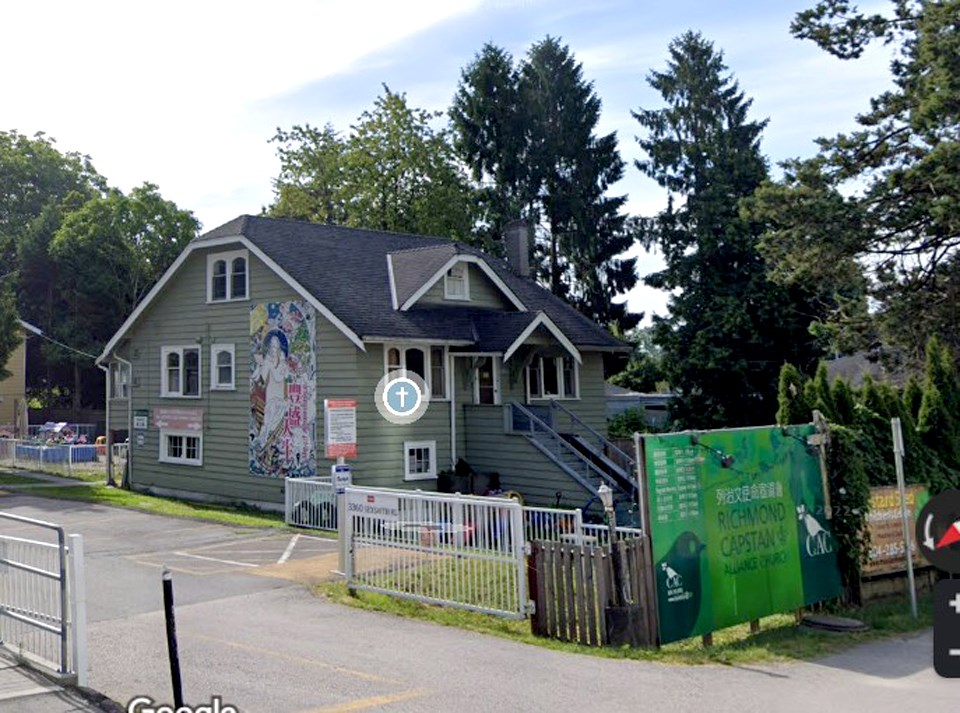Richmond city council isn’t making it mandatory for a city centre developer to save a 1930s house, but they are pushing to see if it could be salvaged and relocated.
The Herrling Residence on Sexsmith Road near Capstan Way is currently located on a property that will be redeveloped.
Coun. Laura Gillanders suggested city council make it mandatory to move the house, preferably in Richmond.
The Herrling Residence property currently operates as a church and child-care centre, but will be consolidated with adjacent properties to rebuild the church and child-care centre and add four residential towers, including one rental building.
The original recommendation from city staff was to ask the developer to make efforts over a 60-day period to relocate the house or at least save artefacts from the house.
Gillanders said she felt this recommendation wasn’t strong enough.
However, Mayor Malcolm Brodie argued against the mandatory requirement, saying there’s a lot of information about the house city council doesn’t have, for example, the heritage value and whether it actually can be moved.
“I think it’s far from convincing that this house is worth saving,” Brodie said.
Coun. Kash Heed said he felt making it mandatory would be “too restrictive” for the developer, whereas Coun. Chak Au said the city staff recommendation gives “so much leeway for the developer not putting enough effort into keeping it.”
“Some people say Richmond doesn’t have any history,” Au said. “I think we have no history because we don’t keep the heritage buildings.”
Au suggested getting input from parks and recreation to see where the building could be relocated to.
Arguing to reconfigure the development, Coun. Michael Wolfe cited the example of the “Hobbit House” in Vancouver – on King Edward Boulevard close to a Canada Line station – which was saved and renovated despite the surrounding area being redeveloped with apartment buildings.
Wolfe suggested the Herrling Residence be retained on site on Sexsmith Road, saving the 36 trees that surround it, and the development be built to encompass it.
“That could be the park space for the whole development,” Wolfe said.
Wolfe also questioned the assessment of the trees on the site, saying he didn’t understand why they were assessed as being diseased, calling them “magnificent conifers.”
In the end, it was decided city staff would assess the heritage value and structural soundness of the building before the public hearing on the development coming up in a month.
The majority of council – with only Couns. Day and Wolfe in opposition – voted to pass first reading on the development.
The redevelopment needed to be approved by city council before Nov. 15 in order to fall under the 10-per-cent affordable rental rules. After Nov. 15, large city centre developments need to have 15 per cent affordable rental units.



